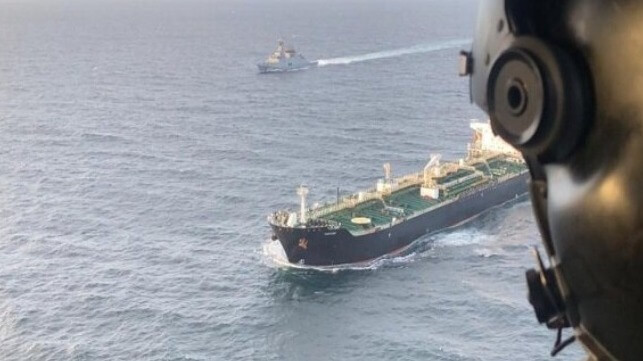Five Russians Charged With Trafficking U.S. Tech and Venezuelan Oil
Two leaders of the scheme have been arrested in Europe and await extradition proceedings

The U.S. Department of Justice has charged five Russian nationals with evading U.S. sanctions on Russian arms and Venezuelan oil, then laundering the proceeds through banks in the U.S. and the UAE.
Russian citizens Yury Orekhov, Artem Uss, Svetlana Kuzurgasheva, Timofey Telegin and Sergey Tulyakov stand accused of buying American-made components for use in manufacturing Russian missiles and jets. In addition, they allegedly operated a second line of business in trading Venezuelan oil to buyers in Russia and China, including a certain Russian aluminum company sanctioned in April 2018 and China's largest oil company (CNPC). Orekhov and Uss have both been arrested in Europe and await proceedings for extradition to the United States.
Orekov and Uss are co-owners of Nord-Deutsche Industrieanlagenbau GmbH (NDA GmbH), an industrial equipment and commodity trading company with offices in Hamburg. Kuzurgasheva worked for Orekhov on an alleged scheme to find and buy "sensitive military and dual-use technologies from U.S. manufacturers," including advanced computer components for missiles, fighters, satellites and other high-end military equipment. Some of these components made their way to sanctioned Russian defense contractors, controlled by co-defendants Timofey Telegin and Sergey Tulyakov. The Justice Department is confident that the components ended up in military equipment because some of them have been found inside Russian weapons systems on the battlefield in Ukraine.
Specific goods sought allegedly included radiation-hardened integrated circuits and memory modules; tactical air navigation interrogators and multi-mode receivers used for the Russian SU-30SM2 fighter jet; and other highly specialized aerospace electronics components.
To gain access to these components, Olekhov and other NDA employees allegedly told American manufacturers that the supplies would be used by civilian rocket corporation Roscosmos and other firms in Russia's space program. This simple falsehood was effective enough that it was "a common method of sanctions evasion used by Russian actors," according to prosecutors. In other transactions, the components were allegedly smuggled through a Malaysian front company, using paperwork provided by an unnamed Malaysian defense official.
NDA also allegedly operated an oil-smuggling scheme. Two Venezuelan nationals, Juan Fernando Serrano Ponce and Juan Carlos Soto, have been charged with helping Orekhov arrange transactions between sanctioned Venezuelan oil company PDVSA and overseas buyers, using NDA as a front company.
Orekhov allegedly told Ponce directly that he was acting on behalf of a sanctioned Russian oligarch who owns a Russian aluminum company, saying “He [the oligarch] is under sanctions as well. That’s why we [are] acting from this company [NDA GmbH]. As fronting.”
As is common in the sanctions-busting oil trade, the alleged scheme involved extensive falsification. Mentions of Venezuela were allegedly scrubbed from all written documentation, and the tankers involved in the deliveries were instructed to turn off their AIS at key moments. During one shipment in 2019, Orekhov allegedly told his partners that:
"[He] is awaiting the transfer slip so that he can show the shipping company for them to switch off the GPS - remember they cannot right now due to insurance issues - but they will once they see the confirmation of transfer. [He] will be speaking to the shipper regarding the tracing back of [the] voyage and look @ the best possible way to not show Amuay [town in Venezuela] as its previous stop over port."

that matters most
Get the latest maritime news delivered to your inbox daily.
To make payments, NDA allegedly used bulk cash couriers, cryptocurrency, and everyday wire transfers handled through U.S. financial institutions. To carry out the transfers, Orekhov and his colleagues allegedly falsified papers and selected banks which would not scrutinize their activity. “This is the sh***est bank in the Emirates . . . they pay to everything," Orekhov allegedly told Soto in one transaction.
“Webs of shell companies, cryptocurrency and an international network of fraudsters failed to shield Orekhov and his cronies from apprehension by U.S. law enforcement. Stamping out evasion of export controls on military technology is among the Task Force’s highest priorities, and today’s arrests reflects the power of those controls,” said Andrew Adams, the director of U.S. Task Force KleptoCapture.
